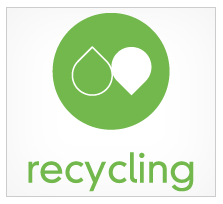Gage Products Company Leads the Adoption of the Circular Economy Concept
Leave a CommentOver the last century, it has been found that the consumption of raw materials grew at a rate that was twice the increase in the global population.
Ponder this for a moment and you will see that a bleak scenario emerges.
The manufacturers of today do not have a system in place to recycle the ‘waste’ that is generated by buyers as they dispose of what doesn’t work and upgrade technology, like smart devices and kitchen appliances, at will.
All in all, we are eating into the resources available to us much faster than we can replenish their reserves. Eventually, a time will come when this unsustainable mode of operation will collapse, pushing the economy into a slump that may take a lot longer than the past recessions to recover.
The G7 Summit & The Concept of Circular Economy:
The G7 is pre-emptive action. It deals with economic emergencies. The G7 countries of U.S., Canada, France, Germany, Italy, Japan and the U.K. have unanimously agreed that the problem of manufacturing waste is no longer confined to negatively impacting the environment. Yes, the landfills, overflowing with materials that can’t biodegrade and thus leach toxic elements into the ground, are a cause for concern. But more than this desecration of nature and the threat of pollution is the imminent concern around dwindling supplies. Reduce-Reuse-Recycle is no longer a high school mantra. It is the only approach that can help the global economy and marketplace stay functional.
The living world has a cyclical operating system. The waste of one species becomes the nutrients of another, and ultimately every single organism is returned to the soil nourishing trees which go on to feed countless others. There is no danger of over exploiting what is available. This cyclic model, in fact, contributes to growth.
The G7 countries are vocal supporters of the Circular Economy – an economy in which buyers become renters. It starts with manufacturers educating potential clients about the pitfalls of the use and dispose linear model of consumption. When a piece of equipment serves its purpose, it is sent back to the brand that created it. There might be incentives like credit points built around the willingness to participate in this return. Johnson Controls, as a company, has succeeded in this regard since 99% of its car batteries are given back by its patrons.
The next shift is more intrinsic and involves choosing and using components in manufacturing that retain their basic properties even if the item they are a part of is dismantled. Thus, screws and nuts go on to serve other products that are being churned out by the brand, biodegradables like cardboard find their way back into nature and parts that are not of use to the parent company are sold to other industries via the Materials Marketplace Database.
The Benefits of a Circular Economy and Gage’s Role in It:
A Circular Economy is an elegant and efficient solution:
– The buyers participate in recycling and by doing their part in reducing the money spent by manufacturers on raw material they help drive down the cost of the new goods they purchase.
– Manufacturers not only recover a portion of the feed that goes into crafting each product for re-utilization, but they also sell what they can’t use to others who benefit from the scraps.
– Nature and the planet are the biggest winners. Strategic reuse curbs greenhouse gas emissions and the vast load on limited resources is lightened.
Gage Products Company is a visionary company that stays one step ahead of our peers. We are one of the few conscious suppliers who make an effort to embrace the principles of a Circular Economy. We reclaim solvent materials from the automobile giants we serve and filter what we obtain for sale in the market, reducing our waste and consumption footprint substantially. In need of our products or interested in contributing to a Circular Economy? Contact us today.


